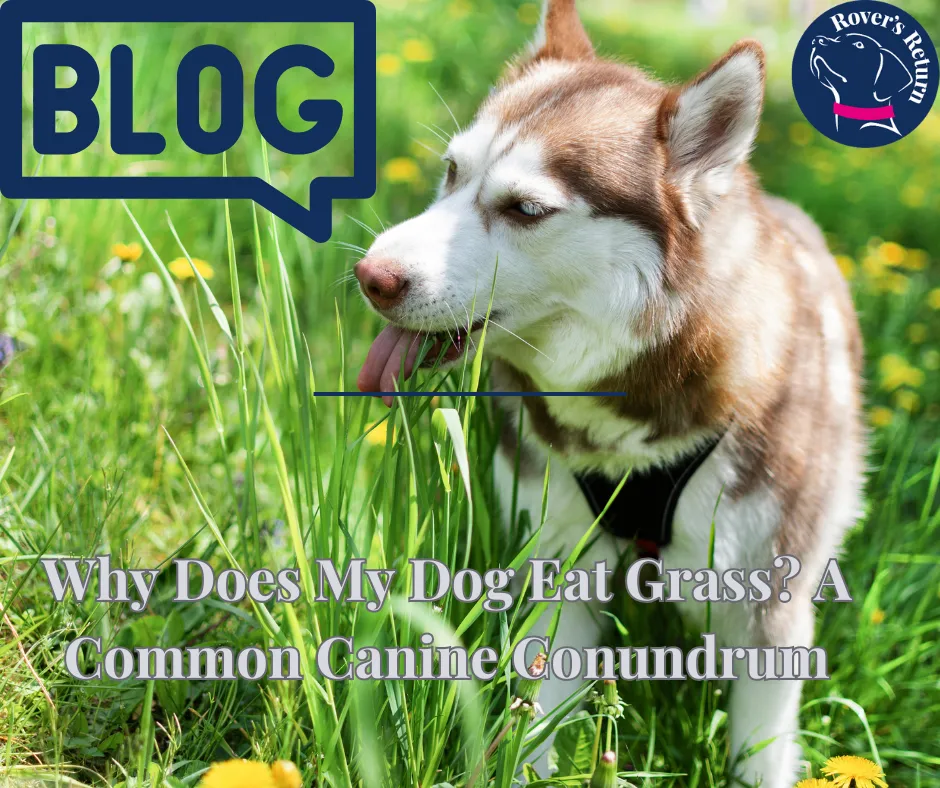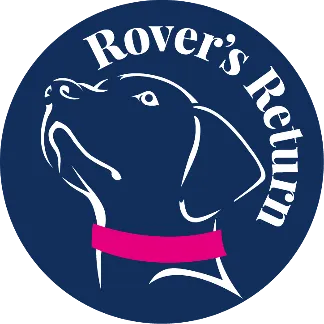Book a FREE 1:1 Assessment Call By Clicking HERE
Specialising In Dog Reactive Behviour
Accredited by APDT, ABTC and UK DOG Behaviour and Training Charter
Qualified and Experienced
Force Free Trainer and Behaviourist
Dog Training Leicestershire Educational Blogs

Why Does My Dog Eat Grass? A Common Canine Conundrum
Why Does My Dog Eat Grass? A Common Canine Conundrum

Have you ever watched your dog munch on a blade of grass, only to wonder what it indicates when your dog eats grass? It is quite common among dogs, but the truth is we don’t know exactly why dogs eat grass.
While it might seem strange to us humans, there are several reasons why dogs might partake in this grassy feast.
1. Dietary Supplement: What are dogs lacking when they eat grass?
Fibre: Grass is a good source of fibre, which can aid in digestion and prevent constipation so dogs may choose to eat it to supplement their diet or to aid them going to the toilet.
Nutrients: Dogs may instinctively eat grass to supplement their diet with essential nutrients that might be lacking in their regular food. Studies found that carnivores such as wolves, Jackals, foxes and coyotes had plant-based foods in their diets and have been observed in the wild eating grass
2. Stomach Upset: Why is my dog suddenly desperate to eat grass?
Indigestion: It is commonly thought that dogs may eat grass to help soothe an upset stomach or to induce vomiting. This can be a natural way for them to rid themselves of something that has upset their digestive system. According to PetMD, a study found that changing the diet of a dog who ate grass and was sick was put in a higher fibre diet and the behaviour ceased. However studies to support this are lacking.
Worms: Do dogs eating grass mean they have worms?
No there are numerous indications that dogs have worms and grass eating does not meant that they have wormes
3. Curiosity:
Exploration: Dogs are naturally curious creatures, and they may explore their environment by tasting different things, including grass.
4. Coprophagy:
Habitual Behavior: While not directly related to eating grass, some dogs might also engage in coprophagy (eating their own or other dogs' faeces). This can be a sign of a nutritional deficiency or a behavioural issue.
5. Because It Tastes Nice.
This is my top reason for it. In my experience of walking dogs, the behaviour increased significantly during early spring when new grass and plants are growing, the behaviour in the same dogs, walked in the same areas decreased later in the year when new growth decreased. I have no scientific basis for this theory, but it happens every year at the same time of year and continues to be with my two dogs Bert and Ernie.

When to Consult a Veterinarian
If your dog is frequently eating grass or exhibiting other unusual behaviours, it's always a good idea to consult with your veterinarian. They can rule out any underlying medical conditions and provide appropriate advice.
Should I Stop My Dog From Eating Grass?
I only stopped the dogs from doing it if it became excessive, because grass doesn’t digest well they have trouble passing it. But consideration must be taken as in some areas grass is treated with pesticides which contain toxins. There can be parasites and bacteria on the grass which will be passed to your dogs if digested. My advice would be not to allow the behaviour unless you know it is good grass and never allow them to eat too much of it.
Tips for Managing Grass Eating
Monitor your dog: Keep an eye on how often your dog is eating grass. If it becomes excessive, talk to your vet.
Keep on a lead: Preventing is often better than stopping, when off the lead it is easier for them to engage, when on the lead you can promote an alternative behaviour so that they don’t engage in the behaviour.
Provide plenty of exercise: A well-exercised dog is less likely to engage in destructive behaviours like excessive grass eating.
Ensure a balanced diet: Make sure your dog is getting all the necessary nutrients in their food.
What vitamins does my dog need if he eats grass? Nothing specific, ensure that their diet has all the nutrients required for optimum health.
Consider a grass-free yard: If grass-eating is a significant problem, you might want to consider a synthetic grass alternative for your garden
Conclusion
While eating grass is normal for many dogs, understanding the reasons behind it can help you address any underlying concerns and provide your furry friend with a happy and healthy life.
Highly Qualified Behaviourist
Accredited by APDT, ABTC and UK DOG Behaviour and Training Charter
Accredited Scentwork Instructor
Force Free Trainer and Behaviour
Force Free Trainer and Behaviour
Accredited Scentwork Instructor
Accredited by APDT, ABTC and UK DOG Behaviour and Training Charter
Highly Qualified Behaviourist
Contact Us
Sam: 07725 802995
You can contact us via Live Chat button at the bottom of the screen or the contact box to the right.
You can also book one of our services online using the View Dates buttons under the service you require.
© 2023 by Rovers Return Dog Trainers Academy - Force Free Dog Training Lutterworth, Broughton Astley, Leicestershire, Hinckley, Nuneaton, Stoney Stanton, South Kilworth, Ullesthorpe
Privacy Policy | Terms and Conditions | Terms and Conditions of Services | Sitemap

Facebook
Instagram
X
LinkedIn
Youtube
TikTok